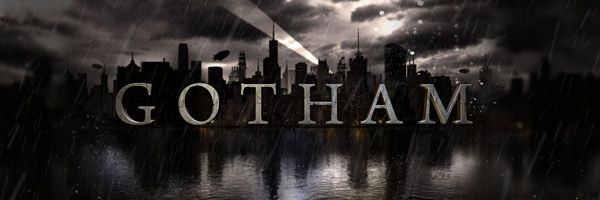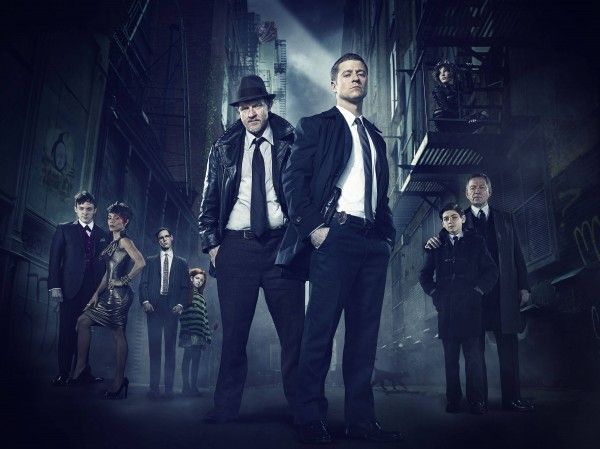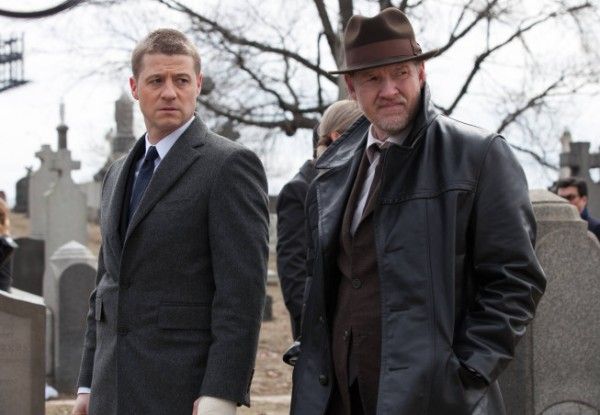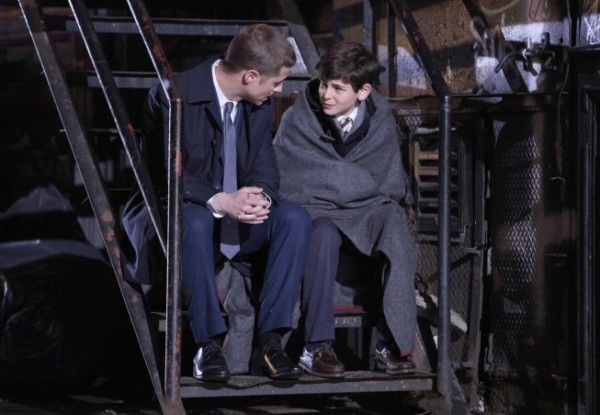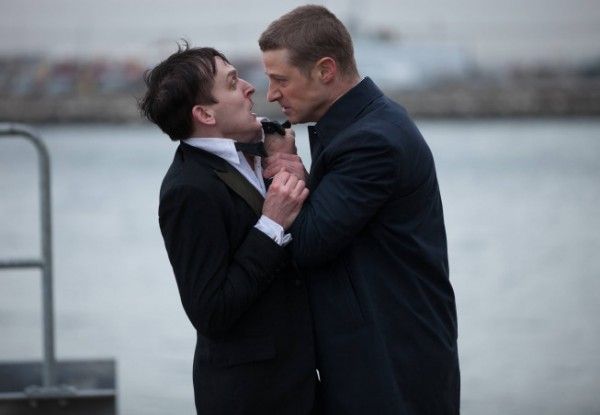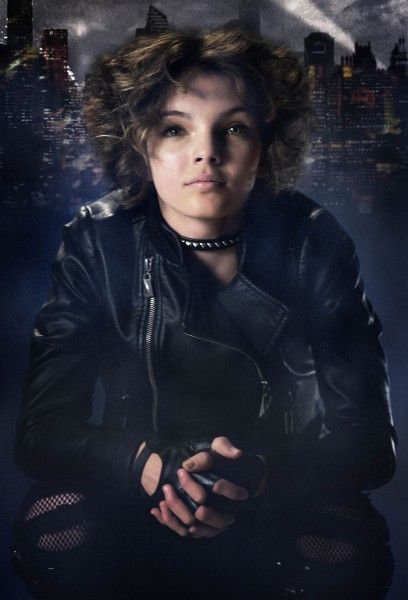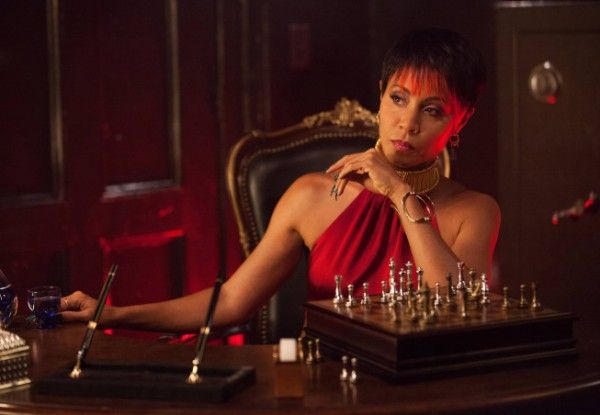One of the most highly anticipated new shows of the season is the Fox drama series Gotham. From executive producer/writer Bruno Heller (The Mentalist, Rome) and with a beautifully cinematic pilot directed by Danny Cannon (the CSI franchise, Nikita), it is the origin story for a number of the characters in the Batman universe, including Catwoman, The Penguin, The Riddler and Poison Ivy, as it shows what made them the formidable adversaries that they eventually become. At its core, it is the story of Detective James Gordon’s (Benjamin McKenzie) rise through a dangerously corrupt city teetering on the edge of evil, and it chronicles the birth of one of the most popular superheroes of our time.
While at the Fox portion of the TCA Press Tour, showrunner Bruno Heller spoke to Collider for this exclusive interview about developing the look for the city of Gotham, making it feel like the real world and not a fantasy world, deciding on the age of Bruce Wayne (David Mazouz) in this story, putting together such a tremendous cast, figuring out when to be more literal and when to be more subtle when it comes to the portrayals of the villains, that ever present question of when we’ll see The Joker, and the decision to have a possibility in every episode. Check out what he had to say after the jump, and be aware that there are some spoilers.
Collider: Have you always thought of the city of Gotham as a character, in itself?
BRUNO HELLER: Oh, absolutely! When Danny [Cannon] and I started talking, we both keyed in on New York in the ‘70s. I remember arriving there and it still makes me go, “Oh, my god!,” with the combination of great beauty and brutalism and danger and sensuality. I think people coming from the country to Delhi or Calcutta or Buenos Aires get the same thrill when you see that kind of skyline and you realize that there’s millions of people there and you don’t know anybody. It’s full of mystery and danger and color and infinite possibility. So, it was important, visually, to be true to that romantic sense that you get when you arrive in the city for the first time and it just seems overwhelming and scary, but magnetically attractive. That’s what we were going for. Danny, to a degree, created that city that you see when he was 12, and he’s just been filling in that world, ever since. For both of us, the chance to actually go to that place, rather than do a semi-laquer or just come close to it. It’s like being able to go to Oz or Ancient Rome, or one of those iconic places that has its own life. For me, you just had to walk in there and start recording the stories, as opposed to having to create the world from scratch.
Gotham feels much more like the real world heightened than a comic book world.
HELLER: Exactly! It’s not a fantasy world. It’s a real world. A fantasy world where anything can happen, and my wife is a big fan of The Lord of the Rings, but you’ve got a bloody wizard there. Just sort it out! Anytime they’re in danger, the geezer in the white robe is going to come [with his wand]. This is a fantasy world where magic doesn’t exist. That’s the beauty of Gotham, as opposed to Metropolis. Superman can just rebuild Metropolis tomorrow. Gotham is real, in the sense that there’s real stakes, there are real things to be lost, there’s real trauma. Not to get pretentious, but Gotham is the city that lives in everybody’s head, whether they call it Gotham or not. It’s the same city that Pinocchio went to. Any story like that, they go to some version of Gotham.
Was there ever any debate about what age Bruce Wayne should be?
HELLER: As I understand it, and I could be wrong, but canonically, he was always 10, 11, 12. Regardless of the precise age, he needed to be prepubescent, which is probably the wrong word because David [Mazouz] would hate for me to say that. But, he needed to be a young kid who feels like a kid. That’s the genius of Bob Kane. It’s not that it predates Freud, but it’s pre-Freud in the sense that it leaps over any coherent theorizing you could do about it, and gets right to everybody’s childhood fear of abandonment, of not being who they should be, of feeling powerless and weak.
So, it needed a kid who is both young and vulnerable, in that way, but who could also express deep acting truths. I’ve worked with lots of kid actors, but David Mazouz is, by far, the best young actor that I’ve ever worked with. He has a focus, concentration and profound understanding of the human condition, which is a bizarre thing to say about a 12-year-old boy. An instinctive understanding of those things just shines out of him. You can ask Ben [McKenzie] and the other people who have worked with him, it’s spooky because he puts older and far more experienced actors on their metal with the power that he brings to what he’s doing.
How challenging was it to put together such a tremendous cast?
HELLER: It came together very easily. I knew I wanted Ben for Gordon because I’d worked with him the year before on a show that didn’t go. He has genuine integrity. I won’t say that it’s a rare commodity in actors, but they tend to be more flibbertigibbet types. He’s very grounded. He could be a bomber pilot of a Supreme Court lawyer or a neurosurgeon, but he’s gone into acting. He has honor and he has values. That’s what shines through, and that’s what Gordon needs.
Was it that easy with all of the characters?
HELLER: As with Gordon, something about the truth of that actor, as a person, has to reflect the character. You can’t be someone you’re not on TV. You can in movies, but not on TV because you can’t hide. Jada [Pinkett Smith] has a bit of ferocity about her. Donal [Logue] has a rascal edge to him, and he’s a very worldly man. I wouldn’t say that Robin [Lord Taylor] is a psychopath, but he has a theatrical sense of self and a self-confidence that shines through.
With some of the villains, you are much more literal, like with Selina Kyle interacting with cats and in her cat-like movements, and then with Ivy tending to plants. But with others, you just refer to their nickname or are more subtle about it, in some way. Is there a lot of discussion about how literal you should get with those characters?
HELLER: Yeah, and that’s a good question. There’s two counter-veiling forces at work there. To me, the nub of this thing is the origin story. I would like to start, not in the cradle, but before Penguin got into his clothes and before Selina had ever seen a cat. But the other side of that is that the audience does not want to wait until Episode 6 to go, “Oh, I get it! That’s clever!” The audiences who remain through Episode 6 will go, “Oh, that was great! That’s the Penguin!” But it’s the truth of TV today that you have to open big, and you have to hold them. For the fanboys and fangirls, you could have done a very subtle journey of Oswald Cobblepot, for instance, with no resemblance to the iconic Penguin, at all, and then build it to there, but the demands of show business say no. And that’s true of Selina Kyle and Poison Ivy, to some degree. There’s no point of putting that little girl in as Ivy, unless you indicated to people that care that that’s Poison Ivy. Otherwise, it’s just a little girl. Having said that, now that we’ve established this world, we will work in much slower and more subtle ways to bring other characters in.
Was there also discussion about how many villains to include in the pilot, or whether you should hold some of them for later episodes?
HELLER: I haven’t even quantified it, but I guess there are four of those iconic characters there. But no, that just seemed natural. We didn’t shoehorn anyone in. They’re not in a scene for any reason, except to introduce them. It just seemed like a natural quantity. We could have squeezed in a couple more, like Harvey Dent, for instance. But one of the challenges with series TV is not to give everyone all the punchlines, all the gags and all the fun stuff at the top. Everyone is so anxious, for very good reasons, to hit the ground running, but I’ve been on the other end of that. When you get to the fourth, fifth and sixth years of a show, it’s really good to have held back, so that you have somewhere to go. That also applies to levels of violence, levels of humor, levels of production value. We could have made the pilot twice as mind-blowing as it is now, but then you have to keep that going. In the ideal world, Episode 13 is better than Episode 9, and Episode 16 is better than Episode 13. It’s easy to leave people wanting more after the first episode, but it’s hard to leave people wanting more after the 24th episode. And it’s my job, more than anybody else’s, to keep that in mind. One season, in TV terms, is nothing. You need to hit it for three or four seasons, and then you’re doing well, in TV terms. Then, you’ve done your job.
Obviously, the question that everybody has about the show is, when will we see The Joker, and you’ve talked about wanting to establish a possible Joker, in every episode. Why did you decide to take that route with that character? And will we see someone who we’ll definitely know to be The Joker, by the end of the season?
HELLER: No, not definitely. One of the advantages of series TV is that you can change your mind and plan things as you go. The Joker is the crown jewel of the DC villain universe. It’s not a stumbling block, but it’s a solid issue that, in the mythology of The Joker, Batman precedes The Joker. The Joker can’t appear as The Joker before Batman appears. That means, in the life of this series, whoever becomes The Joker is always going to be pre-Joker, if you follow me.
So, for all kinds of reasons, we want to be careful with that and create a real world for a real character to inhabit. The joy of going, “Oh, look, that’s the bloke that’s gonna be The Joker,” will wear very thin, very quickly, if we’re not telling a good, true and engaging story about that character. Not about where he’s going or what cool make-up he’s wearing, but whether you’re interested in that guy, care for him, have empathy for him, and worry about where he’s going. Those are the issues. It’s not about what sadistic, evil crime he’s gonna commit this week. It’s about creating a coherent, living, three-dimensional person.
Will some of the possibilities for The Joker be more obvious than others?
HELLER: Yes. Some of them will be schmuck bait for idiots, and others will be ones that only deep-thinking DC afficionados will even understand where we’re going. And then, hopefully we’ll pull the rug out. That’s the fun of being able to do things on two tracks. There’s the real cognoscenti that we have to respect and listen to and understand, and then there’s the larger audience who doesn’t give a fuck. And we have to please both those audiences, equally.
Gotham premieres on Fox on September 22nd.

